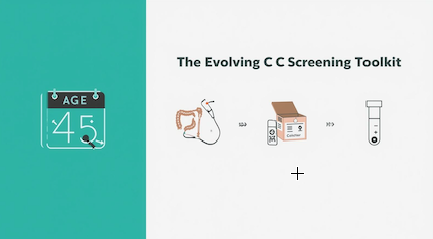The Appendicitis Dilemma: My Surgical Resident Fears vs. Modern Medicine
- OliveHealth

- Nov 4
- 3 min read
by Dr. Ed Fuentes

As a first-year surgical resident, before I found my true calling in Family Medicine, there was one fear that loomed larger than any other, especially during those grueling 2-3 day on-call shifts in the ER: missing an appendicitis. The thought of sending a child home with what could be a ticking time bomb in their abdomen haunted me.
Back then, the approach was clear, almost dogmatic. If we suspected appendicitis, you operated. There was no "wait and see," and certainly no talk of antibiotics as a primary solution. My attending, a seasoned surgeon and our department director, had his own diagnostic tricks. A gentle "accidental" bump into the patient's bed – and if that elicited a wince of pain in the lower right quadrant, it solidified our suspicion.
I vividly remember one particular case, my last day on call. A 10-year-old presented with the classic picture: sudden onset abdominal pain radiating to the RLQ, nausea, vomiting, and a complete loss of appetite. Every alarm bell in my head was ringing. My attending, true to form, performed the surgery. What we thought might be a straightforward procedure turned into a five-hour ordeal. That appendix, small and elusive in a child, was incredibly difficult to find. And when we finally did, it was dangerously close to rupturing.
That experience, and the saying "never let a sun set on an abscess," became ingrained in my medical philosophy. To this day, if I'm faced with the dilemma of a suspected appendicitis, my instinct, my training, and my experience still lean heavily towards surgery. That fear of missing the RLQ pain, of a potential rupture, remains a powerful guide.
The Modern Dilemma: Surgery vs. Simpler Solutions?
Given my background, you can imagine my intrigue – and perhaps a touch of skepticism – when I read about a recent meta-analysis published in JAMA Pediatrics on the appendicitis dilemma in children. At first glance, the results might suggest that immediate surgery is still the most effective treatment for uncomplicated acute appendicitis. But, as with much in medicine, the full picture is more nuanced.
The study, led by Isabella Faria, MD, and her colleagues, compared non-surgical (antibiotic) and surgical management in nearly 1500 children. Here's what they found:
Higher Recurrence with Antibiotics: Nonoperative management was indeed associated with higher rates of recurrence and the need for a later appendectomy. About one in five children who started on antibiotics eventually needed surgery within a year. Major complications and readmission rates were also higher in the nonoperative group. This certainly validates some of my long-held concerns.
Faster Recovery with Antibiotics: However, here's where it gets interesting. Patients treated with antibiotics returned to school a mean of 1.36 days earlier and to normal activities a mean of 4.93 days earlier than those who underwent surgery. This is a significant point for families.
Redefining "Success"
The article really drove home a critical concept: "success" isn't purely clinical; it depends on each family’s priorities. For some, minimizing interventions, avoiding anesthesia, and getting back to daily life sooner might outweigh the higher chance of eventually needing surgery.
Other experts, like Dr. Peter Minneci and Dr. David Talan, further challenge the meta-analysis's interpretation. They argue that needing an appendectomy after a course of antibiotics isn't necessarily a "complication" but rather a planned next step in a strategic treatment pathway. They highlight that many patients can successfully avoid surgery altogether, with some studies showing over 60% of children avoiding appendectomy at one year with antibiotic treatment.
This perspective resonates with a shift towards patient-centered care. A 2021 survey of over 1200 adults found that most would choose nonoperative management initially, even if the chance of eventual surgery was more than 50%.
My Takeaway: Experience Meets Evolving Evidence
So, where does this leave a seasoned family physician like me, who still carries the echoes of a terrifying resident experience?
While the evidence for antibiotic-first approaches is growing, and the benefits of faster recovery and avoiding unnecessary surgery are clear, my personal experience with that nearly ruptured appendix still gives me pause. The saying, "never let a sun set on an abscess," still guides my gut feeling.
___________________
Link to the Medscape Article: https://www.medscape.com/viewarticle/appendicitis-dilemma-surgery-or-simpler-solution-2025a1000t58




Comments